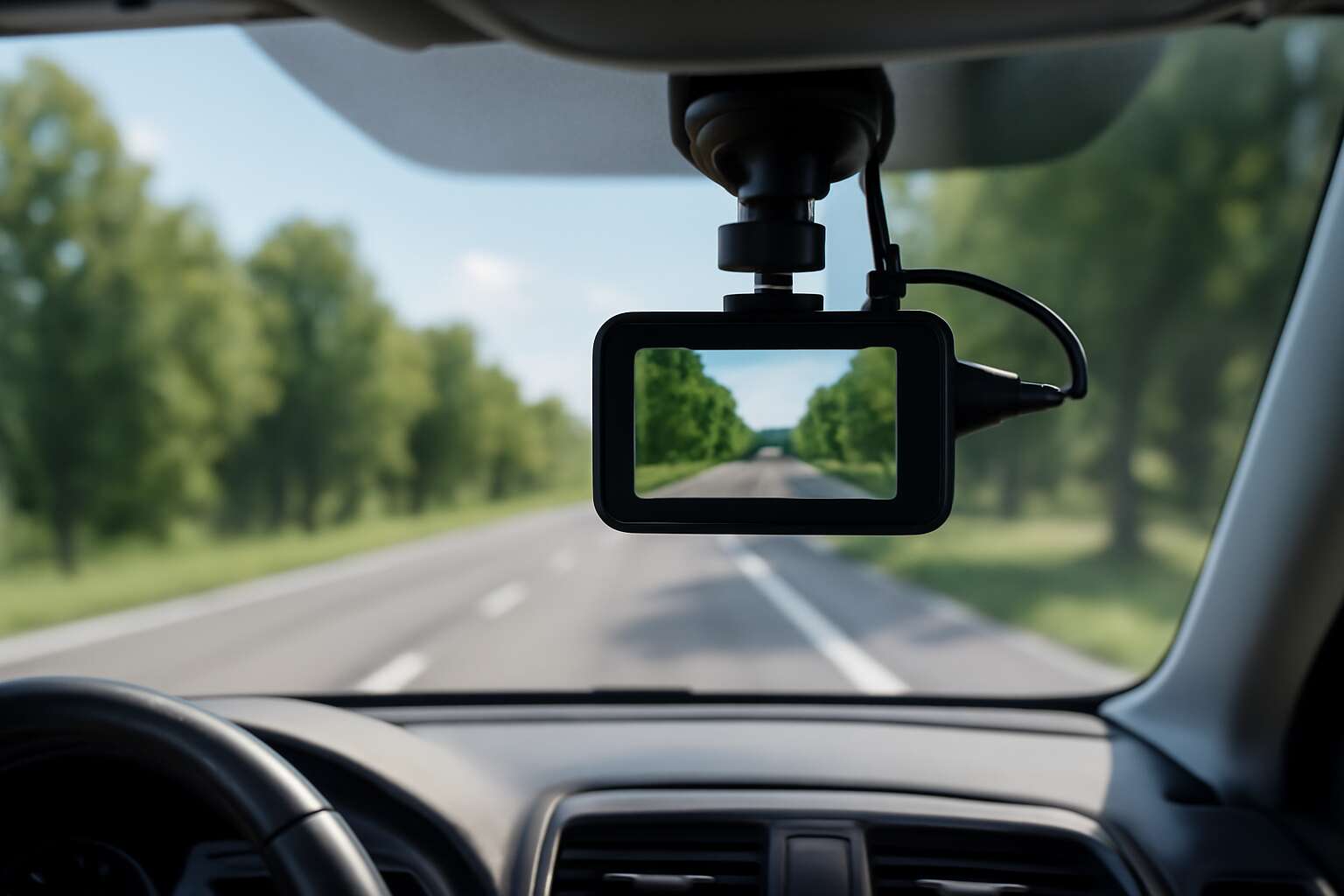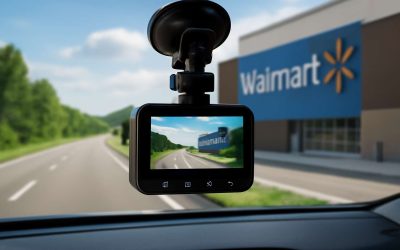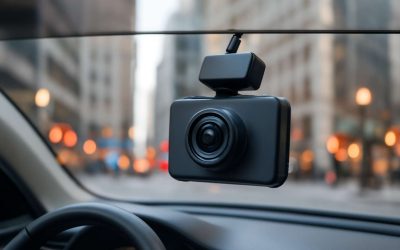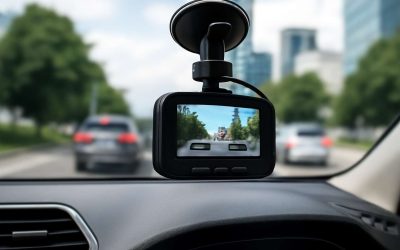Understanding Dash Camera Power Modes
Continuous Recording vs. Event-Triggered Recording – Explains the difference between cameras that record constantly and those that activate only during incidents.
Many drivers wonder, “are dash cameras always on?” The answer depends on the power mode of the device. Continuous recording cameras are designed to stay on at all times, constantly capturing footage as long as the vehicle is powered. This setup offers maximum security, ensuring no incident goes unrecorded.
In contrast, event-triggered dash cameras activate only during specific incidents, such as collisions or sudden movements. These models use motion sensors or G-sensors to detect impacts and automatically start recording. This approach conserves storage space and battery life, but some drivers prefer the peace of mind that comes with continuous recording.
- Continuous recording cameras provide comprehensive coverage.
- Event-triggered systems focus on capturing critical moments only.
Choosing between these modes hinges on your priorities. If you’re asking, “are dash cameras always on,” the type you select will determine whether your device runs non-stop or activates solely during incidents. Both options have their merits, but understanding the difference is key to making an informed decision.
Common Power Sources for Dash Cameras – Discusses how dash cameras are powered, including built-in batteries, hardwiring, and cigarette lighter adapters.
In the intricate dance of modern motoring, understanding how dash cameras are powered reveals much about their readiness and reliability. Many drivers wonder, “are dash cameras always on?” The answer hinges on the device’s power source and configuration. These cameras can draw power from various sources, each influencing whether they run continuously or activate only during specific events.
Dash cameras typically rely on three common power sources: built-in batteries, hardwiring into the vehicle’s electrical system, or using a cigarette lighter adapter. Built-in batteries provide temporary power but are limited in duration, making them unsuitable for constant recording. Hardwiring offers a seamless, always-on connection, enabling the camera to operate 24/7, perfectly suited for those asking, “are dash cameras always on.” Meanwhile, cigarette lighter adapters are convenient and easy to install, but they often power the camera only when the vehicle is active.
For those seeking constant vigilance, hardwiring is the ideal choice. It ensures the dash camera remains on, capturing every moment, even when the vehicle is parked. Conversely, with a cigarette lighter adapter, the camera’s power depends on the ignition status, making it less likely to be “always on.” Understanding these power sources helps drivers choose the right setup aligned with their security needs and the question: are dash cameras always on?
Default Power Settings and Customization Options – Describes typical factory settings and how users can customize power modes.
Most dash cameras arrive with default power settings that mirror a cautious nod to practicality. Typically, factory configurations lean toward event-triggered recording, ensuring the device conserves energy and extends its lifespan. These settings mean the camera is not always on, but rather springs into action during sudden movements or impacts, like a vigilant guard distractedly watching from a distance.
However, modern models often come with customization options that cater to the obsessive, the security-conscious, or simply the overly cautious. From the factory, you might find a dash camera set to record only when the vehicle is in motion, but with a few taps on the menu—perhaps navigating through a user-friendly touchscreen—you can adjust to a mode that keeps the device perpetually alert. This flexibility allows drivers to tailor their dash camera’s power modes, turning it into an unwavering sentinel that’s always on, or one that conserves power when not needed.
Some advanced dash cameras even permit scheduled activation, offering a nuanced approach to surveillance. You can set specific hours for continuous recording, ensuring that the camera is always on during your most vulnerable times—say, overnight parking—without draining the vehicle’s battery unnecessarily. The question, “are dash cameras always on,” becomes less a matter of technical limitation and more a choice of operational preference—a subtle dance between vigilance and conservation.
Advantages of Dash Cameras That Are Always On
Enhanced Safety and Security – How constant recording helps in accident documentation and theft prevention.
In a landscape where unpredictability reigns supreme, the question of whether dash cameras are always on takes on a new level of significance. When your vehicle’s dash cam operates continuously, it becomes an unblinking guardian—ready to capture critical moments with unwavering precision. This constant vigilance can be the difference between losing vital evidence and securing your peace of mind during a dispute or accident.
Enhanced safety and security are undeniable advantages of dash cameras that are always on. They serve as silent witnesses, documenting every detail of an incident, which can be crucial in South Africa’s often volatile road environment. Theft prevention also benefits from this persistent recording, as suspicious activity around your vehicle is caught on camera, deterring potential criminals.
Furthermore, when a theft or collision occurs, the presence of an always-on dash camera provides irrefutable evidence. This not only accelerates insurance claims but also minimizes disputes, ensuring that justice is served swiftly. For anyone questioning the utility of their dash cam, the answer becomes clear—are dash cameras always on? The answer is a resounding yes, offering unmatched levels of security and peace of mind.
Legal and Insurance Benefits – Role of continuous footage in resolving disputes and filing claims.
The power of continuous footage in resolving disputes and streamlining insurance claims cannot be overstated. When a collision occurs or a theft is attempted, the clarity of an unbroken recording can be the difference between a protracted, frustrating saga and swift justice. With dash cameras that are always on, every nuance of an incident is captured—no detail is too small, no moment missed.
In South Africa’s often unpredictable road environment, having a dash cam that is always on ensures that irrefutable evidence is readily available. Insurance companies value this unaltered footage, often reducing claim processing times and minimizing disputes. For drivers questioning whether their dash camera is truly effective, the answer lies in the persistent, unwavering recording that stands as a silent witness, always ready to tell their story when it matters most.
Understanding whether are dash cameras always on is crucial—this feature transforms a simple device into an indispensable safeguard. The ongoing footage not only fortifies your legal standing but also acts as a deterrent to reckless driving and opportunistic theft. In a landscape fraught with uncertainty, knowing your dash camera is always recording offers reassurance that your journey is protected, every second of the way.
Emergency Response Readiness – Access to real-time footage in emergencies.
When seconds matter most, having a dash camera that is always on can be a game changer—literally. In South Africa’s often unpredictable roads, real-time footage can be the difference between a smooth resolution and a long, drawn-out legal saga. Emergency response readiness is elevated when your dash cam is perpetually recording, providing instant access to crucial footage during crises. No need to scramble for the power button or hope your device caught that split-second incident; it’s all happening in the background, silently, relentlessly.
This constant vigilance means you’re never caught off guard. Whether it’s a sudden collision, a suspicious act of theft, or a roadside emergency, an always-on dash camera ensures you have irrefutable evidence at your fingertips. The beauty lies in its ability to deliver real-time footage, acting as an impartial witness when chaos unfolds. Plus, in a landscape where every second counts, this feature can streamline emergency responses and even assist authorities in quick, accurate assessments.
Potential Drawbacks of Always-On Dash Cameras
Battery Drain and Power Consumption – Impacts on vehicle battery life and energy usage.
While the allure of constant vigilance with dash cameras is undeniable, a less-discussed concern is the impact on your vehicle’s battery life. If you’ve ever wondered, are dash cameras always on, it’s crucial to understand how this persistent activity can drain energy unexpectedly. Many drivers assume that a dash camera’s power consumption is negligible, but over time, it can subtly weaken your car’s battery, especially if the device is wired directly to the vehicle’s electrical system.
For those who keep their dash cameras always on, this continuous operation can lead to unforeseen power drain, which may leave you stranded or require costly repairs. To mitigate this, some models include built-in low-voltage cutoff features—yet, even these safeguards aren’t foolproof. Consider the energy implications carefully, especially if your vehicle is parked for extended periods. The question remains: are dash cameras always on, and at what cost to your vehicle’s energy efficiency? Understanding these nuances ensures you balance security with longevity, avoiding unwelcome surprises on the road or at home.
Privacy Concerns – Issues related to recording constantly and privacy implications for others.
While the digital age has bestowed us with the marvel of constant surveillance, the question lingers—are dash cameras always on? For many, the idea of a camera silently watching every move is both reassuring and unsettling. The reality is that some dash cameras are designed to operate continuously, an unblinking eye that captures every second of your journey. But this persistent vigilance raises eyebrows, especially when considering privacy implications for bystanders and fellow drivers.
Constant recording can turn into a double-edged sword, with unintended consequences for privacy. Imagine a busy street scene, where passersby or pedestrians are unknowingly caught in a perpetual recording loop. This unrelenting capture of footage can lead to ethical dilemmas and legal scrutiny—particularly in regions with strict privacy laws. As such, it’s worth pondering whether the benefits of always-on dash cameras outweigh the potential social costs, especially when privacy concerns are front and center in today’s digital discourse.
Data Storage and Management – Challenges with storing large amounts of footage and managing data.
Managing the vast amounts of data generated by dash cameras that are always on can be a daunting task. These devices continuously record footage, creating a sizable digital footprint that requires efficient storage solutions. Without proper management, footage can quickly pile up, cluttering storage devices and complicating retrieval.
One major challenge is ensuring ample data storage capacity, especially for fleet operators or individual drivers who prefer constant surveillance. Cloud storage options are increasingly popular, but they come with their own set of concerns, such as security and ongoing costs. On the other hand, local storage methods like SD cards are limited by physical capacity, necessitating frequent data transfers or deletions.
Given the sheer volume of footage, organizations often face difficulties in managing and organizing recordings. This can result in lost or overwritten data, which might be critical during insurance claims or legal disputes. To navigate these hurdles, some dash cameras offer features like loop recording and automatic file management—tools designed to optimize storage efficiency.
Ultimately, the question of whether dash cameras are always on raises practical considerations about data management. It’s vital for users to weigh the benefits of continuous recording against the logistical challenges of storing and maintaining large datasets.
Settings and Features That Control Camera Power Controls
Motion Detection and Parking Mode – How these features help in conserving power while keeping the camera active.
Many drivers wonder, “are dash cameras always on?” The truth is, modern dash cameras come equipped with advanced settings and features designed to optimize power control while maintaining constant vigilance on the road. These intelligent features help conserve energy, ensuring the camera remains functional without draining the vehicle’s battery excessively.
One popular feature is motion detection, which activates the camera only when movement is sensed nearby—perfect for parking mode. Parking mode itself often relies on built-in sensors or external power sources to keep the camera on only during parking, preventing unnecessary power drain. With adjustable settings, users can tailor the camera’s power behavior, toggling between continuous recording and event-triggered modes based on their needs.
Some dash cameras also include auto-off timers and low-power standby modes, seamlessly switching off after a set period or when the vehicle is parked. These controls ensure that the answer to “are dash cameras always on” remains nuanced—providing peace of mind without sacrificing vehicle power or privacy. This balance between vigilance and conservation makes these features invaluable for drivers seeking reliable security and safety on South African roads.
Auto On/Off and Timer Settings – Details on scheduling the camera operation for energy efficiency.
In the world of vehicle security, the question “are dash cameras always on” echoes in the minds of many South African drivers. The good news? Modern dash cameras are designed with sophisticated power controls that allow you to customize their operation. These intelligent settings prevent unnecessary power drain, ensuring your camera remains vigilant without compromising your vehicle’s battery life.
One key feature that addresses this concern is the auto on/off function. This allows the dash camera to power up when you start your vehicle and shut down when you turn it off, seamlessly integrating into your daily routine. Timer settings further enhance energy efficiency by scheduling the camera to operate only during specific periods—say, during your typical commute or parking hours. This way, you’re never left wondering, “are dash cameras always on,” because you control when they are active.
Some advanced models also offer scheduling options, letting users set precise recording windows. These features are especially beneficial for parking mode, where the camera activates only when motion or impact is detected. By combining these controls, drivers can strike a perfect balance between security and power conservation, all while ensuring their dash camera is ready to capture every critical moment.
G-Sensor and Event Detection – Activation of recording based on sudden movements or impacts.
In a landscape where vehicle security becomes increasingly paramount, the question “are dash cameras always on” often lingers in the minds of South African drivers. The truth lies in the sophistication of modern power controls, which transform these devices from passive observers into intelligent guardians. Instead of leaving your dash camera perpetually active—an approach that can drain your vehicle’s battery—advanced settings offer a nuanced balance of vigilance and conservation.
G-Sensor technology stands at the forefront of this innovation. It detects sudden movements or impacts—those unpredictable moments that could spell the difference between resolving a dispute or losing crucial evidence. When the G-Sensor activates, the dash camera springs into action, capturing vital footage precisely when it matters most. This event detection mechanism ensures that your camera is not always on in the traditional sense but is highly responsive to incidents, conserving power while maintaining security.
Some models incorporate a sophisticated combination of features, including:
- Motion detection—triggering recording only when movement is sensed nearby
- Parking mode—activating upon impact or motion detection during stationary periods
- Scheduled recording—customizable time windows that align with your daily routine
By leveraging these capabilities, drivers can confidently ask themselves, “are dash cameras always on?” The answer becomes nuanced—these devices are designed to be vigilant without succumbing to unnecessary power drain. Instead, they adapt to the environment, ensuring readiness for emergencies and incidents while respecting energy efficiency. The seamless activation of recording based on impact or motion exemplifies how technology can serve both security and sustainability in the modern South African context—an essential consideration for the discerning driver.
Technologies Enabling Dash Cameras to Stay Always On
Hardwiring Kits and Low-Voltage Circuits – How to set up dash cams for continuous operation without draining the battery.
In an era where vehicle safety and security are paramount, the question of are dash cameras always on has become increasingly relevant. Modern dash cameras leverage sophisticated hardware, such as hardwiring kits and low-voltage circuits, to facilitate continuous operation without risking a drained vehicle battery. These setups ensure that your dash cam remains vigilant, capturing every movement, even when parked or unattended.
Hardwiring kits connect your dash camera directly to the vehicle’s power system, bypassing the cigarette lighter socket. This method provides a steady power supply and enables the camera to stay always on while the vehicle is off, thanks to low-voltage cut-off technology. This feature prevents the camera from draining the battery excessively, striking a delicate balance between security and energy efficiency.
- Install a low-voltage circuit module that automatically disconnects power when your vehicle’s battery drops below a safe threshold.
- Configure the dash camera’s auto on/off settings to align with your specific security needs, ensuring it activates during parking mode or emergencies.
These technological advancements make it possible to answer are dash cameras always on with a confident yes—if set up correctly. The seamless integration of hardwiring kits and low-voltage circuits offers peace of mind, ensuring continuous surveillance while protecting your vehicle’s electrical integrity. Such innovations are transforming dash cameras from simple recording devices into vital security assets, all while safeguarding the vehicle’s power source.
Dual Power Systems – Use of separate batteries for extended, always-on recording.
In the shadowed corridors of modern automotive security, a question lingers like a specter: are dash cameras always on? The answer, cloaked in technological innovation, is yes—when armed with dual power systems that defy the constraints of traditional power sources. These advanced setups employ separate batteries, dedicated solely to continuous, unblinking vigilance, ensuring that no moment slips into obscurity.
Such dual power systems harness the eerie resilience of secondary batteries—small, discreet reservoirs of energy that keep your dash camera alive during long, silent nights. This separation from the vehicle’s main battery not only preserves electrical integrity but also guarantees uninterrupted surveillance, even when the engine is long off. The result is a camera that remains vigilant, capturing every flicker of movement or whisper of impact, with no fear of power drain.
- Extend recording capabilities beyond the vehicle’s primary power source.
- Maintain constant footage collection without risking the vehicle’s core electrical health.
- Ensure seamless operation during long parking periods or emergencies.
By integrating these dual power systems, the answer to whether dash cameras always on becomes unequivocally affirmative. It’s an elegant dance of ingenuity and necessity, one that enshrouds your vehicle in a vigilant, ever-watchful eye—guarding against the unseen threats lurking in the shadows of South African roads.
Smart Power Management – Built-in features that optimize power usage.
In a landscape where every second counts, the question of whether dash cameras are always on becomes increasingly relevant. Thanks to cutting-edge smart power management, today’s dash cameras can operate continuously without draining your vehicle’s primary battery. This technological marvel hinges on built-in features that intelligently optimize power usage, ensuring your camera stays vigilant without risking electrical health. These features include automatic shutoff, sleep modes, and adaptive power consumption, which work seamlessly to conserve energy during prolonged parking periods or idle times.
Advanced dash camera systems often incorporate auto on/off and timer settings—allowing users to schedule recording times or activate the camera only during specific events. Moreover, G-sensor and event detection activate recording immediately upon impact or sudden movements, reducing unnecessary power consumption during mundane drives. Such intelligent systems provide the perfect blend of security and efficiency, raising the question—are dash cameras always on? The answer is an emphatic yes, thanks to these innovative power management solutions.
Furthermore, the integration of hardwiring kits and low-voltage circuits ensures continuous operation without risking battery drain. Paired with dual power systems, which employ separate batteries for extended, always-on recording, these cameras uphold relentless vigilance. The result? A discreet yet unwavering guardian that never sleeps—keeping your vehicle under constant watch in South Africa’s unpredictable roads and beyond.
Legal Regulations and Guidelines on Dash Camera Usage
Privacy Laws and Recording Rights – Legalities around recording in public and private spaces.
Understanding the legal landscape surrounding dash camera usage reveals a complex web of privacy laws and recording rights. While the desire for constant surveillance offers peace of mind, it also raises critical questions about legality, especially in public versus private spaces. Are dash cameras always on? The answer varies depending on local regulations and the context in which the device operates. In South Africa, for instance, privacy laws emphasize respecting individual rights, which means recording in private areas without consent can lead to legal repercussions.
Legitimate concerns about data privacy and unauthorized surveillance have prompted governments to establish strict guidelines. Recording in public is generally permissible, provided it doesn’t infringe on others’ privacy rights. Conversely, recording private property or individuals without explicit permission can breach privacy laws. To navigate this gray area, many jurisdictions recommend using dash cameras with features like motion detection or parking mode, which activate only when necessary, helping to balance security and privacy concerns.
Local Regulations Regarding Continuous Recording – Variations by region or country and compliance tips.
In a world where every moment can be a matter of life or death, the question of whether dash cameras are always on becomes more than mere curiosity—it transforms into a quest for clarity and security. Laws surrounding dash camera usage in South Africa have crafted a delicate tapestry of regulation, balancing the desire for constant surveillance with the sacred rights of individual privacy. The enchantment of having a vigilant eye upon your vehicle can be tempered by the legal boundaries that vary across regions, making it essential to understand the local regulations regarding continuous recording.
In some regions, the law permits dash cameras to be always on, especially when equipped with features like parking mode or motion detection, which act as guardians of power and privacy. Conversely, other jurisdictions impose strict limitations, especially around recording private property or individuals without explicit consent. Compliance tips—such as setting the dash cam to activate only during motion or impact—serve as protective talismans, ensuring you remain within legal bounds while enjoying the benefits of vigilant security. The key lies in understanding whether are dash cameras always on in your area, and configuring your device accordingly to align with local legal guidelines.




0 Comments